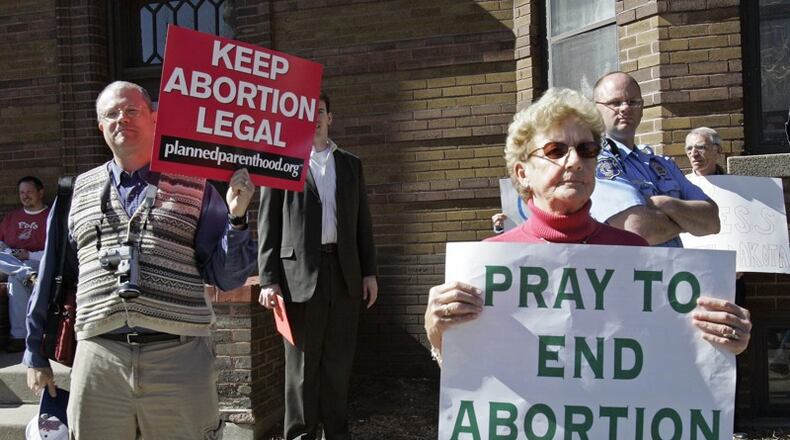Senate Bill 157, the “born alive” bill sponsored by state Sens. Steve Huffman, R-Tipp City, and Terry Johnson, R-McDermott, was up for its second hearing before the House Families, Aging & Human Services Committee. It passed the Ohio Senate on a party-line vote in late October.
“The intent is to have safer abortions,” Huffman, who’s also a physician, has said.
If one doctor performs multiple abortions that result in a live birth each year, that should be known, he has said, referring to a provision that would require a child survival form. Those forms would lead to better data on the issue, Huffman has said.
Miracle said what the bill seeks to accomplish is already in existing law. Its real purpose is to intimidate doctors and patients, with the goal of eventually closing the state’s six abortion providers, she said.
Senate Bill 157 expands the first-degree felony definition of “abortion manslaughter” to include failing to try to keep an infant alive born after an attempted abortion, such as by transferring an infant to a hospital.
Ohio law already makes it a first-degree felony to not provide lifesaving care, Miracle said. Instead of allowing doctors to provide comfort care for nonviable fetuses, the bill would make them perform futile procedures or risk going to prison, she said.
Proponents of the bill have pointed to a U.S. Centers for Disease Control & Prevention report that at least 143 infants died nationwide following an attempted abortion in a 12-year span. Miracle argued that such cases are not the result of early-term procedures in abortion clinics.
“These situations are happening in hospitals where something has tragically gone wrong later in pregnancy,” she said.
Gary Daniels, chief lobbyist for the ACLU of Ohio, denounced an amendment to the bill from state Sen. Rob McCauley, R-Napoleon, which targets doctors who have agreed to provide emergency care at an abortion clinic in lieu of an emergency transfer agreement with a local hospital. Two clinics, one in Cincinnati and one in Dayton, operate under variances from the law requiring that emergency-care hospital agreement.
The amendment says a doctor who fills that role cannot be employed or otherwise connected with a public institution. That would appear to apply only to the Women’s Med Center in Kettering, which has an agreement with physicians associated with Wright State University’s Boonshoft School of Medicine.
Public institution could mean schools, public hospitals, the judicial system and many more government entities, Daniels said. That could prohibit the targeted doctors from writing textbooks, conducting seminars or consulting on subjects entirely unrelated to abortion, he said.
Daniels said the amendment should at least be a separate bill, to be debated independently.
About the Author

